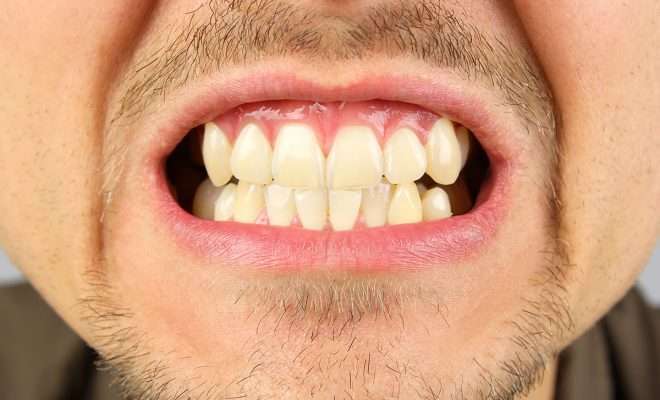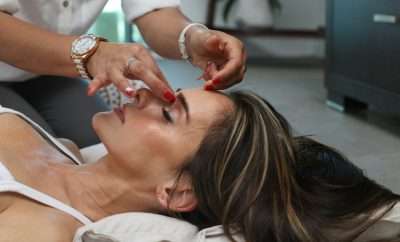 Pixels
Pixels
The Dangers of Teeth Grinding and How to Stop It
The Dangers of Teeth Grinding and How to Stop It
Once the permanent set of teeth grows out, they are here to stay. Even with many procedures that correct and save your teeth, there is no real replacement once one is damaged or falls out. Apart from many habits that can lead to teeth issues, teeth grinding might be one of the worst. This article covers some of the teeth grinding dangers, as well as pieces of advice on how to stop this teeth-damaging habit. Below is a list of the dangers of teeth grinding and how to stop it.
What is bruxism?
Teeth grinding or bruxism is a repeated action of grinding, clenching, and gnashing jaw and teeth. It can happen during the day or night, but it is mostly done unconsciously. It does happen when a person is nervous or suffers from pain, but the real consequences happen when this action repeats and becomes a habit.
The causes of teeth grinding
The most mentioned causes of bruxism come from mental issues, anxiety, depression, and simply stress. There are, however, others that need to be mentioned. Migraines can cause teeth grinding as a coping habit, which eventually will worsen the migraine. Sleep apnoea is a condition developed in sleep, where the person stops breathing for a few seconds and then continues, often with difficulties. Teeth grinding is an often following symptom of sleep apnoea. Bruxism can also appear as a side effect of medications, especially the anti-depressants. The risk also increases with the usage of tobacco, caffeine, alcohol, and illicit drugs.
The dangers of bruxism
Pain –
One of the first signs of the grinding habit is; pain in the head, teeth, and jaw area. Frequent headaches in the eye area along with jaw tension may be the reason to book a dentist appointment to check the teeth condition.
Teeth damage –
Pain doesn’t need to be your key step to go to the appointment. Sensitivity of your teeth to warm, cold, and especially chewy food are all signs that something is not right. As it can be a sign of many dental issues, it is best to go to the dentist. Remember, you won’t see the first tooth damage, and it will be a lot more serious by the time you see chipped, cracked, and shortened teeth.
Jaw disorders –
One of the main conditions that are surely followed by bruxism is TMD, short for temporomandibular disorders. These are the disorders of the TMJ, or temporomandibular jaw the one part of the jaw that you do the clenching motion with.
Gum recession –
The damages to oral health can go further from the teeth. When grinding, the patient makes teeth move, shift and lastly loosen, which causes infections in the gum, which in turn recess and ultimately leads to tooth loss.
Tooth loss –
Possibly the worst consequence of the untreated teeth grinding condition is tooth loss. The exposed dentin (the more yellow layer beneath the white enamel), along with chipping, cracking, and shifting of teeth accelerate tooth decay and its worst consequence, tooth loss. As the grinding motion usually affects multiple teeth, the possibility of many teeth that are actively rotting is high.
Teeth grinding treatments
Relaxation –
The most important step in bruxism treatment is relaxation. The sleeping routine should be introduced and developed. Try going for a long shower to relax the muscles, maybe along with music to ease your mind. Go off the internet for two hours before sleep. Switch it for quality time, reading, or a long body care session. It might be a good idea to introduce meditation and breathing practices as proven relaxation practices.
Pain relievers –
The medication is the first line of help for immediate pain relief. Do be careful to follow the doctor’s instructions for the dosage.
Mouth night guard –
The best treatment for damage prevention is the night mouth guard. It will not deter the habit, but it will stop the damage and possibly lessen the pain from it. You can choose between pre-made or custom solutions available, but we do advise asking for an orthodontic opinion, depending on the state of the patient’s teeth.
Orthodontic treatment –
If the underlying cause of bruxism is misaligned or crooked teeth, the orthodontic treatment can help to move the teeth from a misaligned position and take the habit away with them. There are also mandibular advancement devices that are ideal for treating bruxism when it’s most likely caused by a sleep disorder. These devices also help to manage snore and sleep apnoea.
Behavioural therapy –
As teeth grinding is often connected to some type of mental health issues, it is recommended to visit a therapist to uncover underlying issues. Habit-reversal and creating techniques are both connected to behavioural therapy and can be a key step in teeth grinding treatment.














